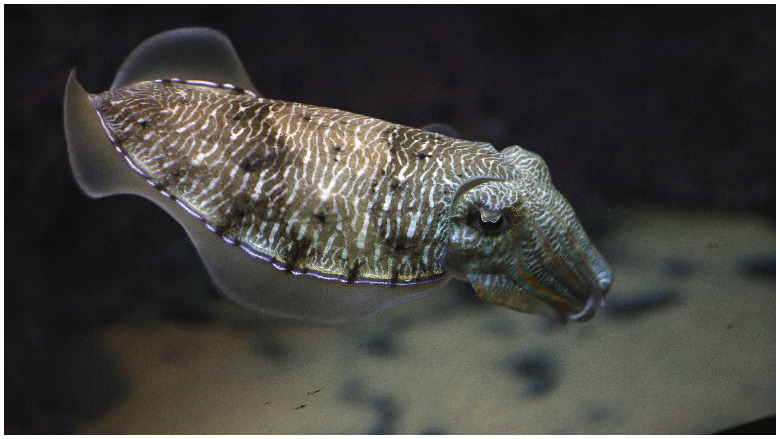
A cephalopods’ cognitive test showed that cuttlefish might be smarter than you think. The test has drawn the interest of people throughout the world. To boil it down, cuttlefish demonstrated some aptitude on a test meant for humans, such as exhibiting self control.
The study gaining all of the attention was published by The Royal Society Publishing. It’s called, “Cuttlefish exert self-control in a delay of gratification task.”
“Some species can exert self-control for several seconds whereas others, such as large-brained vertebrates, can tolerate delays of up to several minutes,” the study notes. “Advanced self-control has been linked to better performance in cognitive tasks and has been hypothesized to evolve in response to specific socio-ecological pressures.”
The study explains, “Self-control, the ability to overcome immediate gratification in favour of a better but delayed reward, is a vital cognitive skill that underpins effective decision-making, goal-directed behaviours and future planning. In humans, self-control has been linked to cognitive performance, whereby individuals who delay gratification for longer achieve higher scores in a range of academic tasks.”
But did cuttlefish show the ability to do this? Some animals have more self control than others; for example, great apes and parrots show some self control but chickens do not.
Here’s what you need to know:
The Cuttlefish Were Tested to See Whether They Would Forgo Immediate Gratification for a Better Reward
According to Business Insider, the cuttlefish were put through a testing process known as the “marshmallow test,” which provides a test designed to see if the subject will hold out for a greater reward, like a marshmallow (although marshmallows were not used in this case).
The test demonstrated whether or not the cuttlefish were willing to give something up as a strategy to get a better reward, a test of cognitive abilities.
“Here, we investigate self-control and learning performance in cuttlefish, an invertebrate that is thought to have evolved under partially different pressures to previously studied vertebrates,” the study explains.
“To test self-control, cuttlefish were presented with a delay maintenance task, which measures an individual’s ability to forgo immediate gratification and sustain a delay for a better but delayed reward. Cuttlefish maintained delay durations for up to 50–130 s. To test learning performance, we used a reversal-learning task, whereby cuttlefish were required to learn to associate the reward with one of two stimuli and then subsequently learn to associate the reward with the alternative stimulus. Cuttlefish that delayed gratification for longer had better learning performance. Our results demonstrate that cuttlefish can tolerate delays to obtain food of higher quality comparable to that of some large-brained vertebrates.”
Six Cuttlefish Underwent the Study
According to the study, researchers tested “six sub-adult cuttlefish (nine months old).”
The study found that the cuttlefish “were observed turning their body away from the immediately available prey item, as if to distract themselves when they needed to delay immediate gratification. However, this apparently self-distracting behaviour was not measured throughout the study because the top of the experimental aquarium was partially covered with an opaque roof, thus restricting our ability to visually monitor these behaviours across all trials.”
How smart are cuttlefish?
According to Business Insider, cuttlefish demonstrated the ability to tell the difference between different numbers of shrimp in a past study.